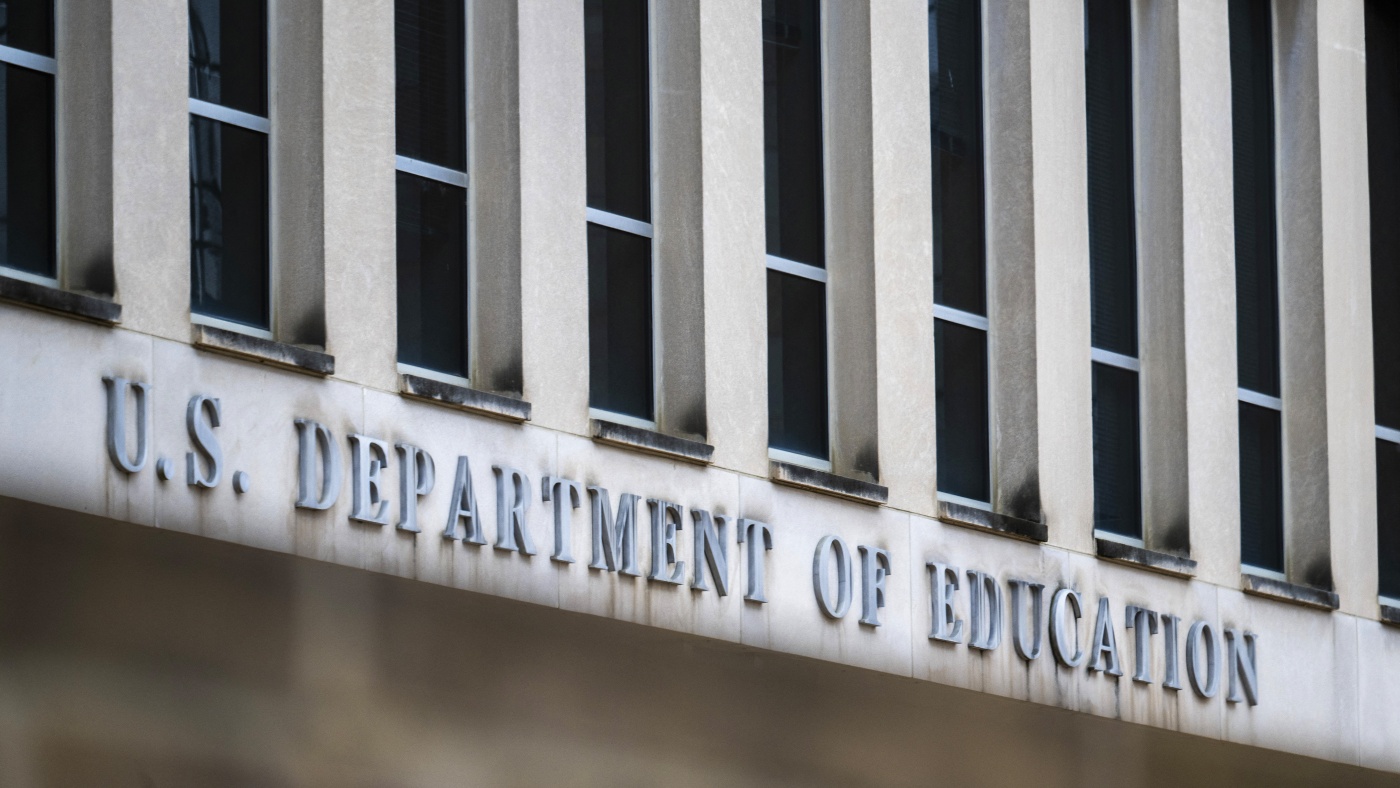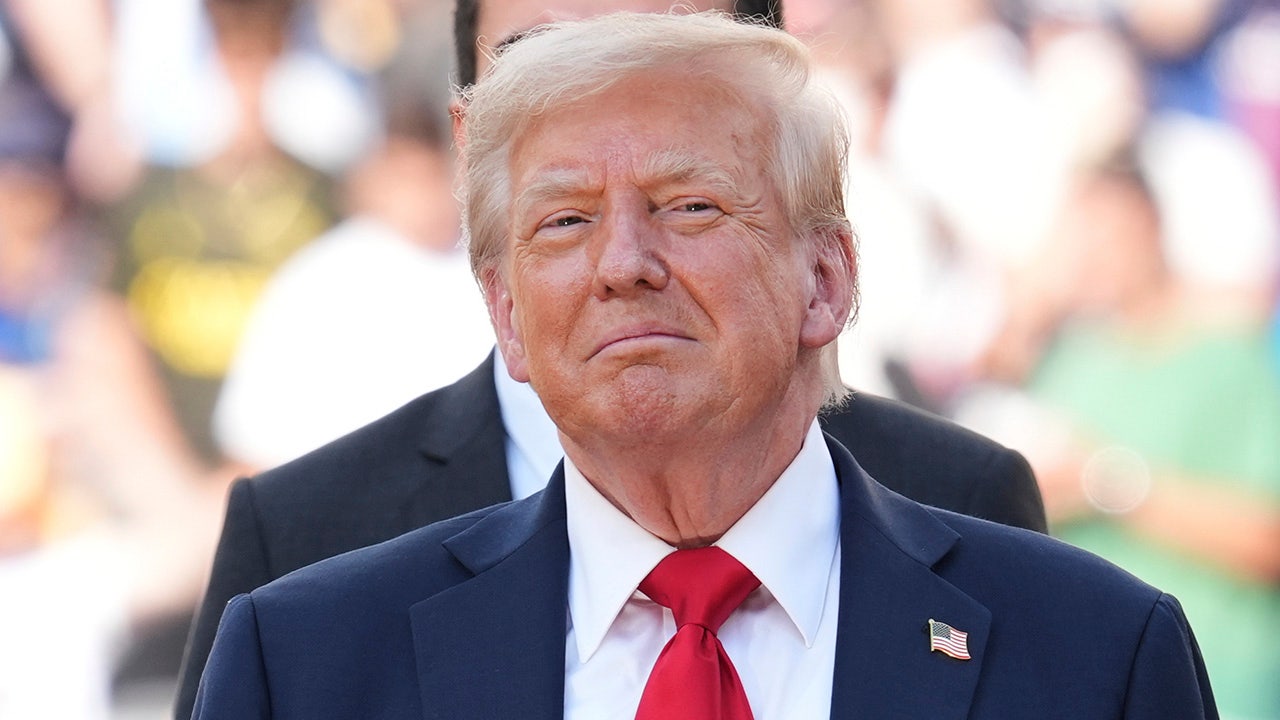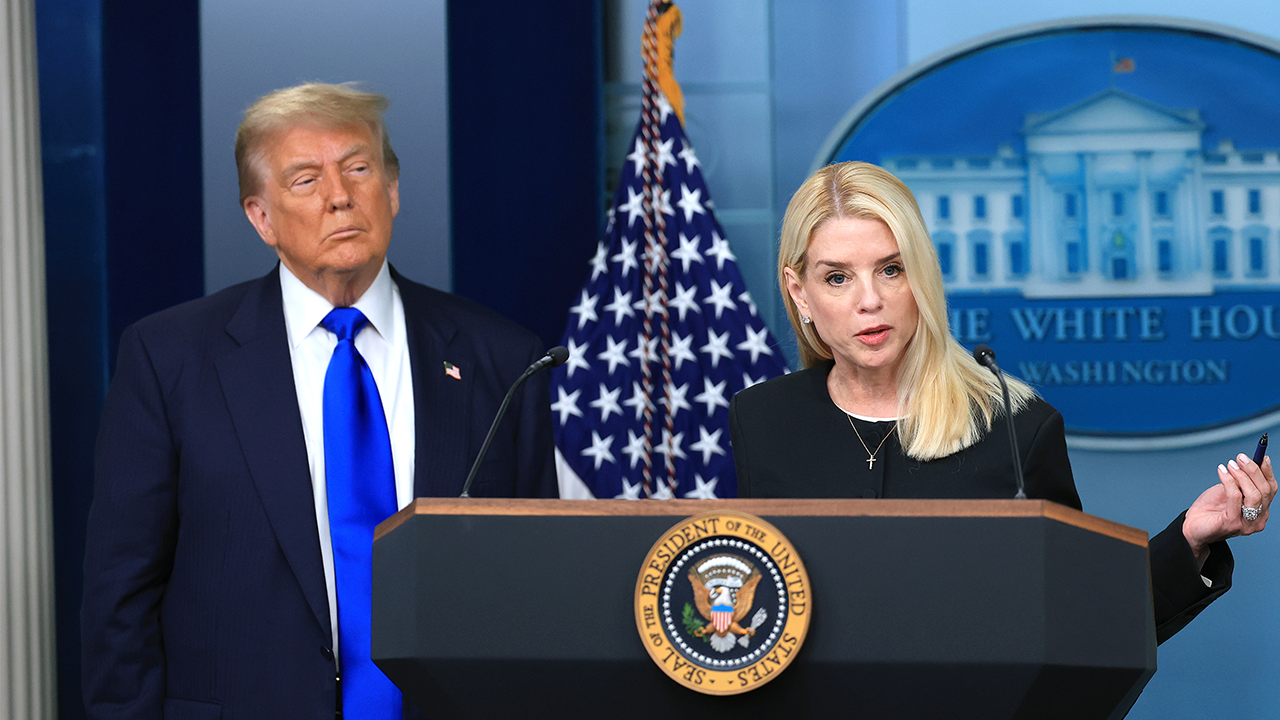Robyn Mak joined Reuters Breakingviews in 2013. Previously, she was a Research Associate for the Global Policy Programs at the Asia Society in New York where she focused on US-Iran relations, US-Myanmar relations and sustainability issues in Asia. She has also worked as a researcher at the Carnegie Endowment for International Peace in Washington DC and interned at several consulting firms, including the Albright Stonebridge Group. She holds a masters degree in international economics and international relations from the Johns Hopkins School of Advanced International Studies and is a magna cum laude graduate of New York University.
World
Breakingviews – Chinese AI arrives by stealth, not with a bang
/cloudfront-us-east-2.images.arcpublishing.com/reuters/2PCISJFJH5KDLD6PQ6S7OLXD3Q.jpg)
HONG KONG, July 28 (Reuters Breakingviews) – China faces a long slog to artificial intelligence supremacy. It wants to be a leader in the field by 2030 and this month unveiled new rules governing the technology that are less onerous than expected. But closed online ecosystems, Beijing’s controls on internet content and U.S. curbs on semiconductor exports to the world’s second largest economy will hamper progress.
There were high expectations of what the People’s Republic could achieve with the technology seen as having the power to solve some of the most pressing challenges on the planet. “In the age of AI, where data is the new oil, China is the new Saudi Arabia”, venture capitalist Lee Kai-fu declared in 2018. Reasons for confidence included troves of data spanning everything from digital payments to e-commerce as well as government support and a growing army of entrepreneurs. Fast forward to today and things look far less compelling.
China’s latest regulations on generative AI – where algorithms trained on vast datasets and users’ inputs learn to perform complex tasks – will pave the way for its tech champions to launch products to rival OpenAI’s ChatGPT. Under the new policy set to go into effect next month, providers of services to the public must submit security assessments. That implies that national security concerns will restrict the technology’s evolution and will pile more pain onto an industry President Xi Jinping has targeted in a brutal two-year crackdown aimed at curbing the disorderly expansion of capital.
The scope and requirements are stricter than in other regions like the United States, where voluntary codes of conduct and rules are only starting to be considered. The European Union, for example, is trying to push ahead with legislation primarily targeting “high risk” AI applications such as those that can be used to influence election outcomes and platforms that have over 45 million users. Yet compared to China’s earlier April draft which contained near-impossible demands such requiring AI-created content to be true and accurate, the latest version seems practical and signals Beijing is serious about supporting the nascent sector to some extent. Notably, the new rules only apply to consumer-facing services, suggesting business products might be given more latitude.
That should benefit outfits like search-engine operator Baidu (9888.HK), , the first major Chinese company to come up with an answer to ChatGPT. Analysts at Goldman Sachs reckon the $50 billion group led by Robin Li will be among the first batch of applicants to win approval to commercialise its chatbot, currently in testing phase, and estimate AI products can boost annual revenue by 13% in 2025. Baidu’s New York stock is up by 30% this year, outperforming the 9% rise in the Nasdaq Golden Dragon index of U.S.-listed Chinese companies.
Yet the country also faces a unique set of challenges. Washington may soon tighten export restrictions to China by targeting AI semiconductors, according to the Wall Street Journal. Cutting off access to chips sold by Nvidia (NVDA.O) or AMD (AMD.O) might set Baidu and peers back by years. Moreover, the country may have leapfrogged the West in mobile payments and such, but China’s internet is dominated by a handful of giants that have built up walled gardens, where platforms keep information and user data to themselves. That means different companies will have access to very different types of data. That’s one reason Bernstein analysts peg Tencent (0700.HK) and ByteDance, whose social media and video apps have the largest reach in the country, as the most promising AI contenders.
There are other hurdles companies must navigate. Strict censorship requirements are one. China’s internet firewall that prohibits its citizens from accessing unapproved content will limit the amount of information companies can use to train their AI models, potentially leaving firms in the country at a disadvantage to Western peers.
Another headscratcher is how to make money. Microsoft (MSFT.O) recently said it will charge $30 a month for generative-AI features in its widely-used office software. It’s hard to see how Chinese software or cloud providers like Alibaba (9988.HK), can charge premium prices to mainland businesses which lag by far their global counterparts when it comes to IT spending. Cumulative losses at the Alibaba-backed Megvii, which is preparing to go public in Shanghai, topped $1.8 billion between 2018 to 2020; listed peers SenseTime (0020.HK) and CloudWalk Technology (688327.SS) remain deep in the red too. A slowing economy and brutal price war in the fiercely competitive cloud market will only make monetising AI products harder.
Perhaps the biggest uncertainty is whether Xi will allow the private companies currently leading the charge in AI to thrive. It would be at odds with his government’s efforts to strengthen control over certain industries over the past few years. While officials are now reassuring investors that the environment for entrepreneurial businesses will improve, licensing requirements and the latest AI rules suggest Beijing will keep a tight grip over the sector and views it as highly strategic. That might best explain why U.S.-listed Alibaba in May announced plans for a full-separation of its cloud and data business. China’s AI moment has arrived, only with far less promise than initially hoped.
Follow @mak_robyn on Twitter
CONTEXT NEWS
The Cyberspace Administration of China on July 13 published provisional regulations on generative artificial intelligence which will take effect on August 15.
Providers who offer services to the public will need to submit security assessments and will be required to uphold core socialist values in their applications and comply with national security laws, among other things.
China wants to become a world leader in AI by 2030, according to a 2017 roadmap released by the State Council.
Editing by Una Galani and Thomas Shum
Our Standards: The Thomson Reuters Trust Principles.
Opinions expressed are those of the author. They do not reflect the views of Reuters News, which, under the Trust Principles, is committed to integrity, independence, and freedom from bias.

Continue Reading
World
US Threatens Mexican Airline Flights Over Airline Competition Issues
WASHINGTON (Reuters) -The Trump administration said Saturday it is taking a series of actions against Mexico over the Mexican government’s decision in 2023 to rescind some flight slots for U.S. carriers and forced U.S. cargo carriers to relocate operations in Mexico City. U.S. Transportation …
World
Farage slams secret Afghan refugee resettlement to UK, claims sex offenders among arrivals

NEWYou can now listen to Fox News articles!
Nigel Farage, the leader of the right-wing Reform UK party, slammed the Conservative and Labour parties after it was revealed this week thousands of Afghan refugees were secretly resettled into the country without the public’s knowledge.
Farage claimed some of those Afghans are sex offenders, sparking a row with the ruling Labour Party, which denied the claims.
Around 4,500 Afghans have been relocated to the U.K. so far with around 6,900 expected to be relocated overall.
Reform UK leader Nigel Farage speaks during a press conference in Westminster, United Kingdom, June 10, 2025. (Thomas Krych/Anadolu via Getty Images)
EUROPEAN NATIONS DEMAND POWER TO DEPORT IMMIGRANTS WHO COMMIT CRIMES
Meanwhile, waves of migrants continue arriving by boat, further inflaming public frustration over unchecked immigration.
“Amongst the number that have come are convicted sex offenders – I am not, I promise you, making any of this up, and the total cost of this operation has been a staggering £7 billion [$9 billion],” Farage said in a post on X.
“The numbers are off the charts, the cost is beyond comprehension and the threat to women walking the streets of this country, frankly, is incalculable.”
Relocating the 6,900 Afghans is expected to cost £850 million [$1.1 billion]. The £7 billion Farage referenced is likely the total cost of all Afghan resettlement programs since 2021 of about 36,000 Afghans through multiple schemes.
The British government earlier this week revealed it secretly resettled thousands of Afghan nationals in the U.K. after a catastrophic data breach exposed nearly 19,000 applicants who had worked with U.K. forces, an operation kept under wraps by a rare “super injunction” that barred even the mention of its existence.
The injunction was lifted Tuesday in conjunction with a decision by Britain’s current Labour Party government to make the program public.

The national flag of the United Kingdom is displayed as British troops and service personnel remaining in Afghanistan are joined by International Security Assistance Force personnel and civilians for a Remembrance Sunday service at Kandahar Airfield Nov. 9, 2014, in Kandahar, Afghanistan. (Matt Cardy/Getty Images)
‘AFGHANS FOR TRUMP’ GROUP FEELS ABANDONED AFTER ADMINISTRATION REVOKES REFUGEE PROTECTIONS
A spreadsheet containing the personal information of the nearly 19,000 people who had applied to relocate to the U.K. after the Taliban takeover of Afghanistan was accidentally released in 2022 because of a defense official’s email error. The government only became aware of the leak when some of the data was published on Facebook 18 months later.
“I can’t think of a better example of the total incompetence, dishonesty and genuine lack of understanding of what the priorities of a British government are than this Afghan scandal,” Farage added.
But U.K. Defense Secretary John Healey denied any known sex offenders had been allowed into the U.K. under the program and insisted everyone had been checked “carefully” for any criminal records
He said if Farage had any “hard evidence,” he should report it to the police.

Demonstrators hold placards as Afghans living in London and their supporters attend a protest called by Stand Up To Racism at the Home Office to demand that more refugees from Afghanistan be allowed into the U.K. Aug. 23, 2021, in London. (Guy Smallman; Getty)
“Anyone who has come into this country under any of the government schemes that was under the previous government and now from Afghanistan is checked carefully for security, checked carefully for any of those sort of criminal records that would preclude and prevent them coming to this country,” Healey told Times Radio, according to The Sun.
British soldiers were sent to Afghanistan as part of an international deployment against al Qaeda and Taliban forces in the war on terror after the Sept. 11, 2001, attacks. At the peak of the operation, there were almost 10,000 U.K. troops in the country, mostly in Helmand province in the south.
The Associated Press contributed to this report.
World
Anti-immigration demonstrations in more than 80 cities across Poland

ADVERTISEMENT
Anti-immigration protests organised by the far-right Confederation Libery and Independence party took place in more than 80 cities across Poland, including in Warsaw, Krakow, Poznan, Wroclaw, and Bialystok.
Demonstrators demanded the closure of the borders with Lithuania, Ukraine, Belarus and Slovakia.
“Enough of the years-long policy of ‘let everyone in, and who they are will be determined later’,” Krzysztof Bosak, one of Confederation party’s leaders, wrote on X.
“Polish women and men have the right to be concerned about the level of security in their own homeland,” he added.
In a speech at the start of the march, Bosak demanded the resignation of Donald Tusk’s government, the closure of the borders with Lithuania, Ukraine, Belarus and Slovakia to curb illegal immigration, and the permission for soldiers to shoot at people who cross the border illegally.
“Without closing Poland to illegal immigration, without launching a deportation operation, without renouncing political correctness, without equipping the Border Guard and the forces responsible for controlling the legality of residence, and without controlling the labour market, security will gradually deteriorate,” he said, calling for a change in policy.
The protests come shortly after Poland introduced border controls with Germany and Lithuania, which came into effect on 7 July.
On the Polish-German border, controls are in place at 52 places and on the Polish-Lithuanian border at 13.
The issue of migration has been widely up for debate, and a contentious topic in Polish politics, particularly as the country has experienced a rise in immigration in recent years.
In the first round of the presidential elections held in May, candidates of the far-right performed well, with Slawomir Mentzen of the Confederation Libery and Independence party and Grzegorz Braun of Confederation of the Polish Crown party coming in third and fourth, respectively.
Many believe that both candidates’ successes were due to their hardline stance on migration.
Interior ministers agree on asylum rules
On Friday, Poland and five other EU countries, agreed a set of targets for tightening asylum rules. During the meeting hosted by Germany’s interior minister, German Chancellor Friedrich Merz admitted that he was “pleased that Poland is carrying out border controls.”
Last year, Poland saw an increase in asylum applications due to the recurring crisis on its eastern border with Belarus, which has been ongoing since 2021.
As a result, the Polish parliament passed a law temporarily suspending the right to apply for asylum for those who crossed the Belarusian border.
Both Polish and European leaders have long accused Belarusian President Alexander Lukashenko of orchestrating the influx of migrants to destabilise the EU.
On Saturday morning, the Ministry of Interior and Administration published statistics on the number of approvals issued for special protection for foreigners on X.
“In 2024, we issued 40 per cent fewer approvals for special protection for foreigners than in 2021. This is the result of a better managed system, our operations at the border and more efficient procedures,” the post read.
“The government is pursuing a responsible and well-considered migration policy, taking care of the stability and security of citizens,” it added.
Counter demonstrations in many cities
Counter-manifestations against the Confederation marches were also held in Warsaw, Katowice, Olsztyn and other cities on Saturday.
Demonstrators carried banners with the slogans: “Accept the refugees, delete the fascists,” “Action Democracy” and “We defend the right to asylum.”
“Everyone, regardless of their skin colour and origin, should feel comfortable not only in Poland, but also in Europe,” Maria Książak of the International Humanitarian Initiative Foundation said during the demonstration.
-

 Iowa1 week ago
Iowa1 week ago8 ways Trump’s ‘Big, Beautiful Bill’ will affect Iowans, from rural hospitals to biofuels
-

 Politics1 week ago
Politics1 week agoConstitutional scholar uses Biden autopen to flip Dems’ ‘democracy’ script against them: ‘Scandal’
-

 Politics1 week ago
Politics1 week agoDOJ rejects Ghislaine Maxwell’s appeal in SCOTUS response
-

 Health1 week ago
Health1 week agoNew weekly injection for Parkinson's could replace daily pill for millions, study suggests
-

 Culture1 week ago
Culture1 week agoTest Your Knowledge of French Novels Made Into Musicals and Movies
-

 News1 week ago
News1 week agoSCOTUS allows dismantling of Education Dept. And, Trump threatens Russia with tariffs
-
Business1 week ago
Musk says he will seek shareholder approval for Tesla investment in xAI
-

 Sports1 week ago
Sports1 week agoEx-MLB pitcher Dan Serafini found guilty of murdering father-in-law




















